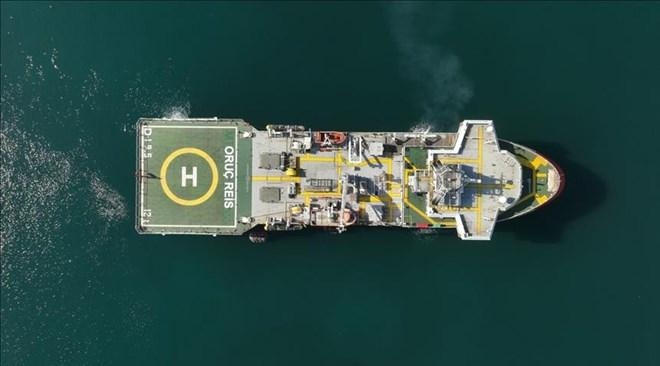Tensions are once again flaring in the Aegean, as Turkey issues a NAVTEX for the deployment of the research vessel Piri Reis, prompting Athens to respond with its own notice. The move comes amid disputes over drilling rights south of Crete and delays in the Greece–Cyprus electricity interconnection project.
Ankara’s Move
The Turkish Hydrographic Service in Smyrna issued NAVTEX 0863/25, covering waters west of Lesvos and south of Chios, extending to the islet of Kaloyeros. The location is symbolically charged: the islet lies within a permanent Greek military firing range, a status long contested by Turkey.
While the Piri Reis is technically authorized to conduct oceanographic surveys, the jurisdictional issue is clear – the vessel’s declared route cuts across Greek territorial waters and continental shelf zones.
Athens’ Response
Greece countered with NAVTEX 154/25 from the Lemnos station, directly rejecting Ankara’s claims. Greek authorities, including the Foreign Ministry and Hellenic Armed Forces, are now closely monitoring the ship’s movements, with the next 24 hours deemed critical.
Strategic Context
Though such mid-Aegean surveys are not, in themselves, a major provocation, they are interpreted as part of a controlled escalation strategy, designed to highlight the competing claims of both countries.
The timing is crucial:
- just days after Chevron submitted its proposal for two offshore blocks south of Crete, ignoring the Turkey–Libya maritime deal,
- and in the midst of renewed disputes over the Greece–Cyprus electricity interconnection, an issue causing friction not only with Ankara but also between Athens and Nicosia.
Turkish Rhetoric
Turkey’s Foreign Minister Hakan Fidan has repeatedly stressed the need to “respect Turkey’s rights in the Eastern Mediterranean.” His latest remarks were widely seen as a signal of Ankara’s discontent with U.S. energy moves in Crete’s southern offshore zone.
Source: pagenews.gr
